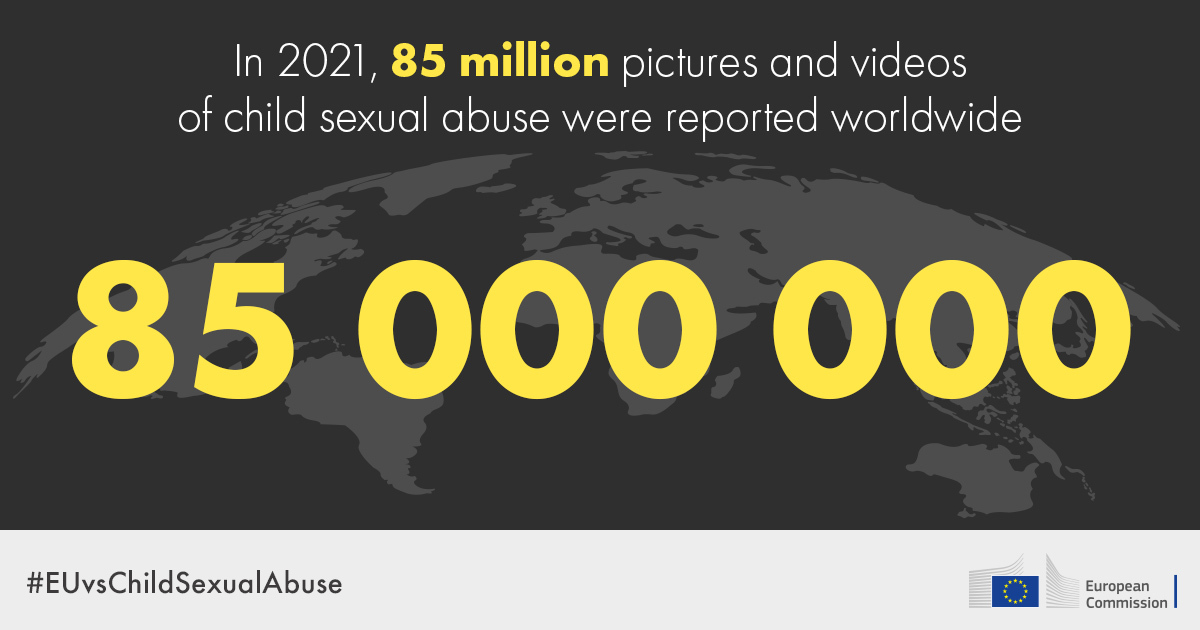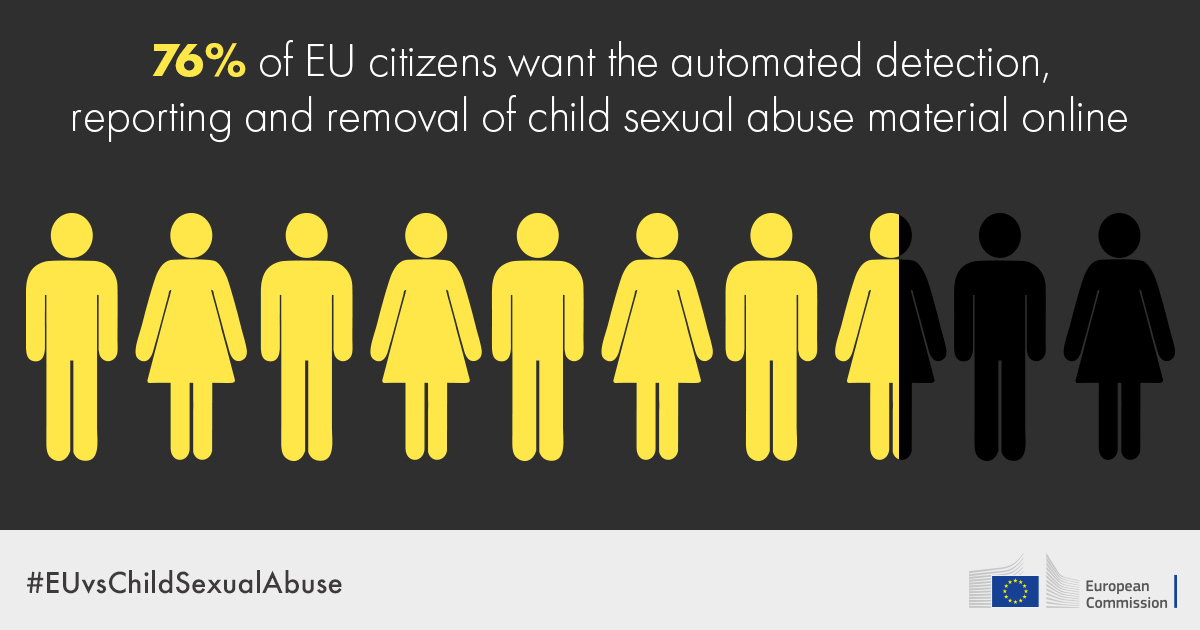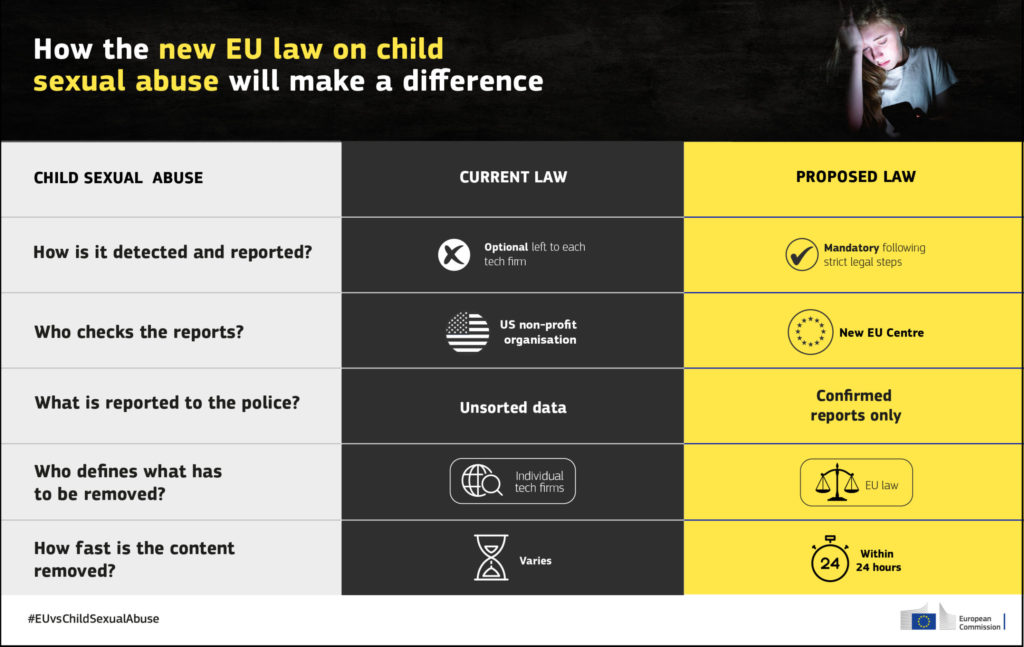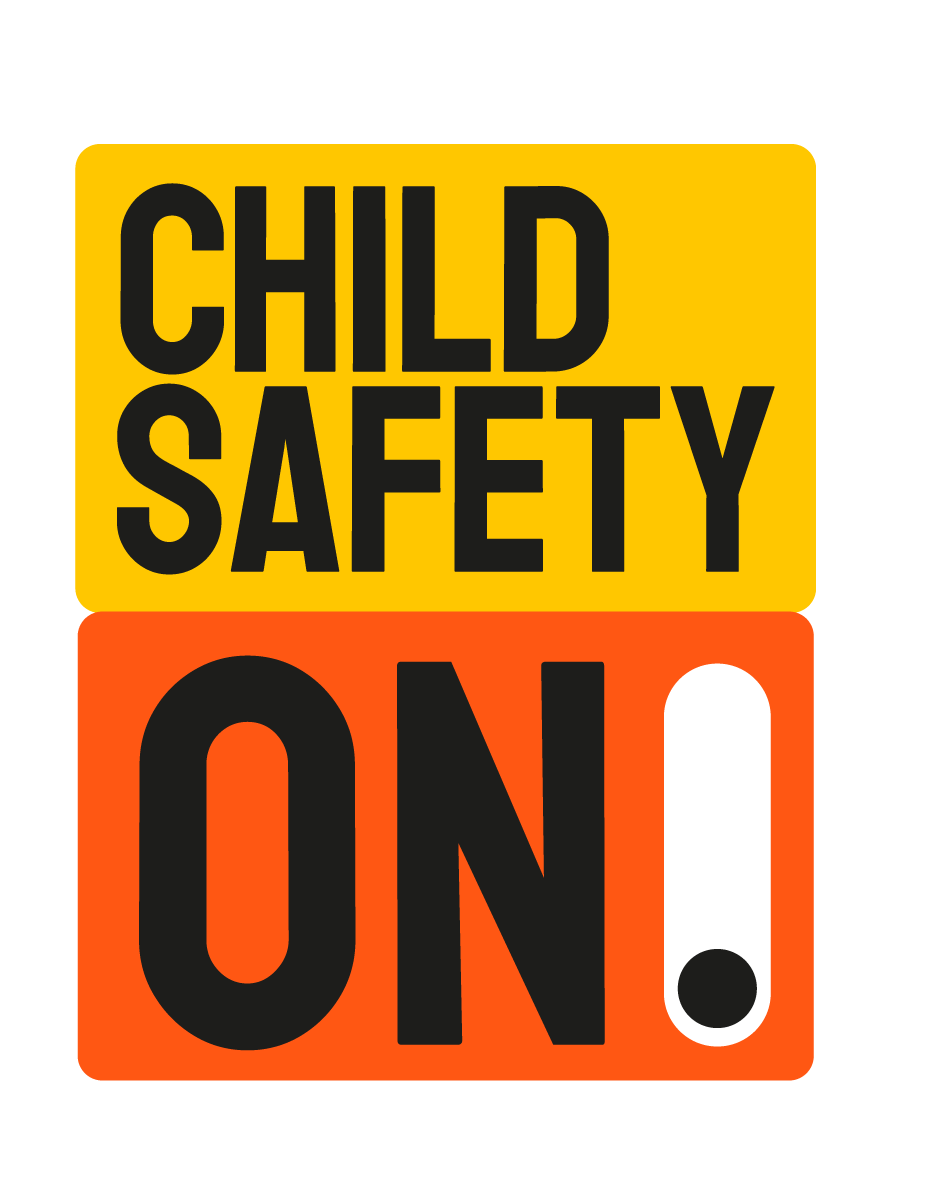
On 21 December 2020, the EU Electronic Communications Code (EECC) came into force and expanded the scope of the EU e-Privacy Directive. As a result, the confidentiality rules laid down in the e-Privacy Directive started to apply to online service providers operating in the EU, such as social network, web-hosting, and online messaging platforms.
Companies were placed into legal limbo about voluntarily scanning their platforms to detect, remove, and report child sexual abuse material online. This had immediate consequences for child safety online.
Prior to the EECC entering into force, at least 300 companies and organisations worldwide had been voluntarily scanning for child sexual abuse materials on their online platforms. In the six weeks following the EECC regulation coming into effect, the National Centre for Missing and Exploited Children announced a 51% decrease in reports of child sexual abuse material originating from the European Union, clearly showing that a significant number remained undetected.
![]()
As a response, our team began advocating to ensure that online service providers end all forms of online child sexual abuse online on their platforms, and adopt preventive measures, such as age verification tools. We started to engage with concerned parties across the EU and beyond. By calling on EU policymakers and EU citizens to take action, we began to influence the adoption of robust and harmonised policies that will place child safety online as the top priority in digital spaces and encrypted environments across EU member states.
2021
After months of ECPAT advocating with other child rights organisations to ensure online service providers could continue using technology tools to detect, report, and remove child sexual abuse material found online, the European institutions reached an agreement: on 14 July 2021, a temporary derogation to the e-Privacy Directive was adopted to allow online service providers to continue their voluntary detection of child sexual material and abuse online.
Although ECPAT initially welcomed this critical development, the interim derogation will only last for three years – until 3 August 2024. This means that the absence of a long-term solution could place countless children at further risk of online child sexual exploitation and abuse.
Effective, long-term solutions to counter the proliferation of child sexual abuse and exploitation online start with clear legislation.
In September 2021, we surveyed 9,410 adults in the EU and we asked them about their thoughts on a legal obligation to use detection technology to prevent and combat child sexual abuse online. The results clearly demonstrated that there is widespread public support for the use of automated tools to identify child sexual abuse material online and for the European Union to introduce longer-term legislation that will keep children safe online. Learn more.
ECPAT polling results show that 7 in 10 EU citizens want more child safety online and believe that the EU should require online service providers to detect, report, and remove any forms of child sexual abuse material online.


2022
On 11 May 2022, the European Commission presented the Proposal to Prevent and Combat Child Sexual Abuse online, alongside a new European Strategy for a Better Internet for Kids. By adopting these measures, the European Union has the opportunity to establish a rulebook on what online service providers must do to ensure child safety online.
With the adoption of the Digital Services Act, which significantly revises the obligations placed on online service providers with regards to all users in the EU, the European Union sends a clear message to EU citizens and across the world: children’s rights need to be protected both offline and online.
ECPAT welcomes these measures, and together with over 100 organisations that strive for children’s rights, safety, and security online and offline, we call on the European Union to transform the European digital landscape and ensure #ChildSafety online.
Be part of the #ChildSafetyON movement and support our campaign to call on politicians, online service providers, and tech companies to take responsibility in the creation of a better digital world, one where all children will feel empowered and safe from the increasing risks of sexual abuse and exploitation.

Project Beacon – Placing children’s rights at the heart of EU digital policies
What do the EU citizens really think about data privacy and child protection online?
Towards online child protection in the EU
Why Does Online Child Protection Matter? Here is ECPAT Project Beacon to explain why
ECPAT welcomes European Commission’s proposal to prevent and combat child sexual abuse
What is ECPAT doing to ensure Child Safety Online in the EU?
Comment, like, and share to help us get the word out! #EUvsChildSexualAbuse #ChildSafetyON